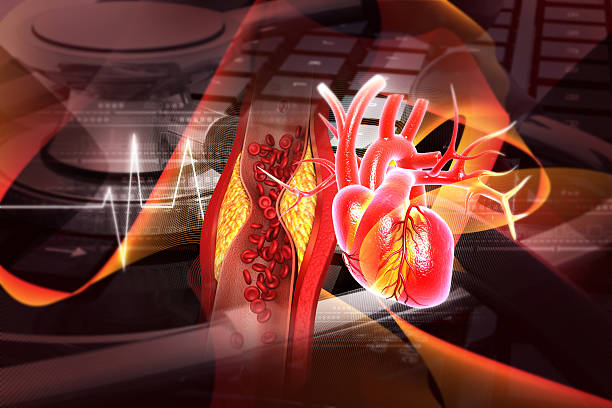1. Understanding Why Diabetes Occurs
Diabetes occurs when the body cannot properly regulate blood sugar (glucose) levels. Normally, the pancreas produces insulin, a hormone that helps move glucose from the bloodstream into cells for energy. In diabetes, either the body does not produce enough insulin (Type 1 diabetes) or the cells become resistant to insulin (Type 2 diabetes). This leads to elevated blood sugar levels, known as hyperglycemia. Genetics, unhealthy eating, lack of exercise, obesity, stress, and certain medical conditions are all major triggers for diabetes. In Type 1 diabetes, the immune system mistakenly attacks insulin-producing cells, making it an autoimmune disease. Type 2 diabetes develops gradually due to poor lifestyle choices and genetic predisposition. Gestational diabetes, another form, occurs during pregnancy. Understanding why diabetes occurs is the first step to preventing it. By maintaining a healthy weight, eating balanced meals, and staying active, one can significantly lower the risk.
2. What Diabetes Does to the Body Over Time
Diabetes affects the entire body, not just blood sugar levels. Persistently high glucose damages blood vessels and nerves, leading to long-term complications. The heart, kidneys, eyes, and feet are especially vulnerable. Diabetes increases the risk of heart disease, stroke, kidney failure, and vision problems like diabetic retinopathy. Poor circulation in the feet can even lead to infections and, in severe cases, amputations. Nerve damage, called neuropathy, causes tingling, numbness, and pain in the hands and feet. Additionally, uncontrolled diabetes weakens immunity, making the body more prone to infections. Fatigue, frequent urination, extreme thirst, and unexplained weight loss are early signs. Over time, untreated diabetes can severely reduce quality of life. However, when managed well through medication, diet, and exercise, many complications can be prevented. Diabetes is not just a sugar problem—it’s a full-body condition that requires awareness and control
3. The Role of Lifestyle in Causing Diabetes
Lifestyle is one of the biggest contributors to diabetes, especially Type 2. A diet rich in processed foods, sugary drinks, and unhealthy fats puts extra stress on the pancreas. Overeating combined with lack of physical activity leads to obesity, which increases insulin resistance. Stress and irregular sleep patterns also disrupt hormones, raising the risk of diabetes. Smoking and excessive alcohol consumption further worsen the problem. On the other hand, lifestyle changes can significantly reduce the risk or delay the onset of diabetes. Regular exercise improves insulin sensitivity, while a fiber-rich diet stabilizes blood sugar levels. Adequate sleep and stress management keep hormones in balance, supporting metabolic health. Unlike Type 1 diabetes, which is not preventable, Type 2 is largely linked to lifestyle choices. This means individuals have the power to make changes that can prevent or reverse prediabetes. Small, consistent habits such as walking daily, eating fresh fruits and vegetables, and cutting down on sugary foods can go a long way in protecting against diabetes.

4. How Diabetes Affects Daily Life
Living with diabetes means constant awareness and management of blood sugar levels. Daily life is affected in many ways—patients must monitor glucose, follow a healthy diet, take medications or insulin, and exercise regularly. Social situations, like dining out or celebrations, require extra care to avoid blood sugar spikes. Diabetes can also affect energy levels, making people feel tired or sluggish throughout the day. Emotional health is equally impacted, as patients often experience stress, anxiety, or frustration about managing a lifelong condition. For children or young adults with Type 1 diabetes, managing insulin injections becomes part of their routine. For working adults, balancing career responsibilities with health care can be challenging. However, with proper guidance, diabetes does not have to limit one’s lifestyle. Modern technology like continuous glucose monitors (CGM) and insulin pumps has made management easier. Support groups, healthy routines, and mindful eating allow individuals with diabetes to live fulfilling and active lives
5. Preventing and Managing Diabetes Effectively
The good news is that diabetes can be managed and, in many cases, prevented. Prevention focuses on lifestyle—maintaining a healthy weight, eating balanced meals, and staying physically active. A diet rich in whole grains, vegetables, lean protein, and low in refined sugar helps control blood sugar naturally. Exercise, such as brisk walking, yoga, or swimming, improves insulin sensitivity and supports weight management. Stress management techniques like meditation and proper sleep routines are equally important. For those already diagnosed, regular monitoring of blood sugar, taking prescribed medications, and following medical advice are essential. Routine check-ups for eyes, kidneys, and heart ensure early detection of complications. Diabetes is not a death sentence—it is a condition that requires discipline and awareness. With healthy habits, patients can lead long, energetic, and productive lives. Prevention and management go hand in hand, and the earlier one adopts a balanced lifestyle, the better the outcome
Disclaimer
The tips and suggestions mentioned in this article are intended for general informational purposes only. Before starting any fitness program, making changes to your diet, or trying any remedies related to health conditions, please consult your doctor or a qualified healthcare professional. Dr. You does not verify or endorse the authenticity of any such claims made herein

